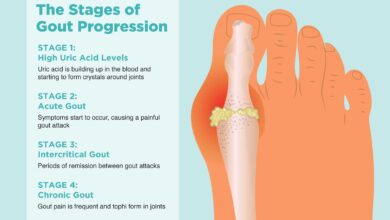Why Nasal Moisture Matters: A Deep Look at Dry Nose Relief and Everyday Hydration
Most people rarely think about the inside of their nose—until it becomes dry, irritated, or uncomfortable. Nasal dryness affects people in all climates, but it becomes especially noticeable during seasonal transitions, long flights, or exposure to indoor heating. When the nasal lining loses moisture, the discomfort can be surprising, and in some cases, it can even interfere with sleep and breathing.
Understanding how nasal moisture works is the first step in choosing the right solutions. This article explores the science behind nasal hydration and the role a nostril moisturizer plays in maintaining comfort.
The Nose’s Natural Hydration System
The nose has its own built-in humidifier. The mucous membrane warms and moisturizes the air you inhale, trapping dust and microorganisms along the way. However, this system is sensitive. Small changes in environment or routine can reduce the amount of moisture produced, leading to dryness.
Some situations that commonly disrupt nasal hydration include:
Dry Indoor Air
Heating systems and air conditioners lower humidity, causing the nasal lining to lose moisture faster than it can replace it.
Dehydration
When your body lacks adequate fluids, mucus becomes thicker and the nose feels dry or tight.
Weather Shifts
Cold winds and low outdoor humidity can remove moisture from exposed tissues.
Frequent Blowing or Rinsing
Even routine cold symptoms can irritate the nasal lining when tissues are wiped or blown repeatedly.
Persistent dryness may develop into dry sinuses, which can cause deeper facial discomfort and difficulty breathing through the nose.
How Moisturizing the Nose Supports Overall Comfort
Maintaining moisture inside the nose supports multiple functions that go beyond comfort:
- Easier airflow
- Less irritation from airborne particles
- Better protection against environmental changes
- Reduced risk of cracking or crusting
- Support for the nose’s natural defense barriers
A consistent moisturizing routine acts as a protective buffer, especially for individuals who live in dry climates or frequently work in heated environments.
Types of Nasal Moisturizers and How They Work
There are several ways to keep the nose hydrated, each with its own benefits. Choosing the right option depends on the level of dryness and your personal preference.
Saline Sprays
Simple saltwater solutions that restore moisture quickly, though the effects may be short-lived.
Gels and Ointments
Thicker formulas designed to stay on the nasal lining longer, especially helpful for nighttime dryness.
Natural Oils
Oil-based moisturizers are preferred by many who experience deeper dryness because oils remain on the tissue longer and support the skin barrier more effectively.
This is where options like Narisure Dry Nose Relief come in. Its blend of sesame oil, vitamin E, and rose geranium oil offers a gentle way to coat and soothe dry nasal passages.
To learn more about its formulation, you can visit the product page for the best nasal moisturizer.
Practical Tips to Relieve Nasal Dryness
Relief from nasal dryness often involves combining small habits with the right moisturizer. Consider integrating the following steps into your routine:
Add Humidity to Your Environment
A room humidifier can significantly reduce dryness during sleep or long indoor hours.
Stay Consistently Hydrated
Water intake affects the moisture level of all mucous membranes, including those in the nose.
Limit Use of Medicated Nasal Sprays
Overuse of decongestants can strip moisture from the nasal lining.
Moisturize During Travel
Airplane cabins are notoriously dry. Applying a light moisturizer before the flight can help maintain nasal comfort.
Use an Oil-Based Moisturizer Before Bed
A calming formulation such as Narisure Dry Nose Relief can help maintain hydration throughout the night, reducing crusting and irritation by morning.
When Dryness Extends Beyond the Nose
If the dryness becomes more frequent or affects areas deeper within the face, the issue may involve the sinuses as well. Reviewing the signs of dry sinuses can help you determine whether the discomfort is isolated to the nostrils or connected to a broader sinus condition.
Conclusion
Nasal dryness is more than a minor irritation—it’s a signal that your nose’s natural moisture barrier needs attention. By understanding how the nasal lining works and adopting the right moisturizing strategies, you can maintain healthy, comfortable breathing throughout the year. Whether you choose a saline spray, a gel, or an oil-based formulation, a consistent routine is the key to keeping nasal tissue calm and hydrated



